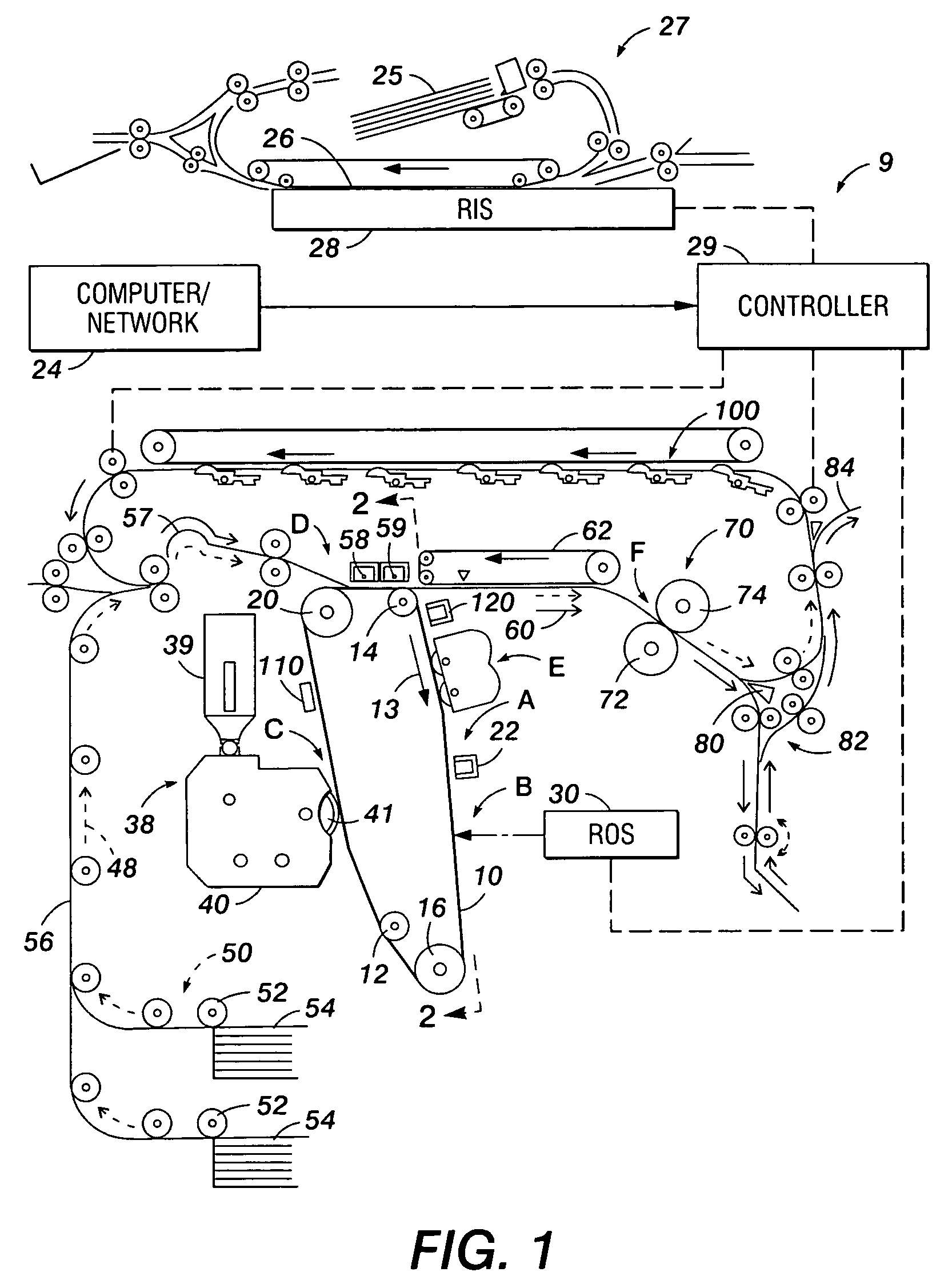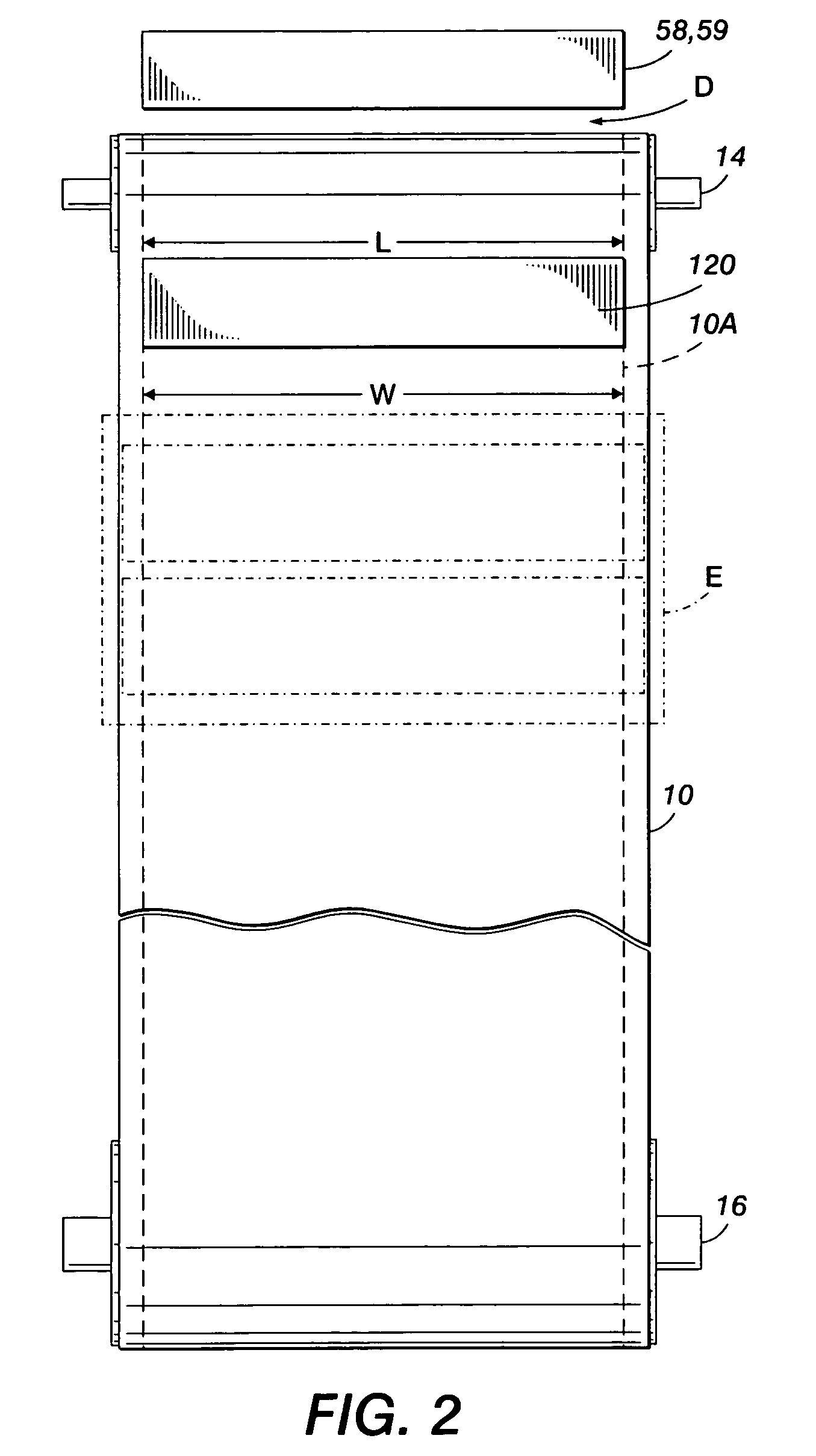Method and apparatus for sensing and controlling residual mass on customer images
a residual mass and image technology, applied in electrographic process apparatus, instruments, optics, etc., can solve the problems of limited information provided by measuring residual mass with a point sensor like an etac, limited information provided by typical etac sensors, and limited transfer performance, etc., to achieve the effect of improving print quality performance and stability
- Summary
- Abstract
- Description
- Claims
- Application Information
AI Technical Summary
Benefits of technology
Problems solved by technology
Method used
Image
Examples
Embodiment Construction
[0018]For a general understanding of the features of the disclosed system and method, reference is made to the drawings, which are for purposes of illustration and are not representative of size or scale. In the drawings, like reference numerals have been used throughout to identify identical elements.
[0019]When examining transfer performance by sensing the residual mass on a photoreceptor, prior methods utilized residual mass sensing and a suitable closed-loop control system to optimize transfer efficiency (or average residual mass levels) in the xerographic system. Because of the inability to discern between various types of transfer related defects, these prior methods were not completely effective at controlling the output of the transfer process. For example, to correct a problem with transfer induced point deletions, the transfer field would typically be reduced. However, to correct a problem with transfer induced mottle, the transfer field would typically be increased. As it ...
PUM
 Login to View More
Login to View More Abstract
Description
Claims
Application Information
 Login to View More
Login to View More - R&D
- Intellectual Property
- Life Sciences
- Materials
- Tech Scout
- Unparalleled Data Quality
- Higher Quality Content
- 60% Fewer Hallucinations
Browse by: Latest US Patents, China's latest patents, Technical Efficacy Thesaurus, Application Domain, Technology Topic, Popular Technical Reports.
© 2025 PatSnap. All rights reserved.Legal|Privacy policy|Modern Slavery Act Transparency Statement|Sitemap|About US| Contact US: help@patsnap.com



